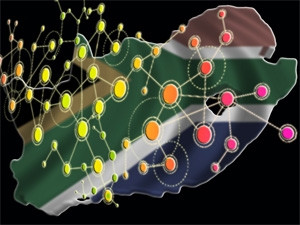
National Treasury is considering a request by state-owned fibre-optic infrastructure company Broadband Infraco for a "going concern guarantee" for R243 million.
A Treasury spokesperson says the request is not for a bailout or any transfer of money, but rather for a guarantee for debt financing. If granted, it will mean government will take on the liability of Broadband Infraco's debt obligation should it be unable to do so.
"A guarantee enables a public entity to raise financing it requires to service the interest and repay the debt."
The state's wholesale broadband arm, which falls under the Department of Telecommunications and Postal Services (DTPS), has already received R1.8 billion from government to date but is seeking urgent funding from Treasury.
It was revealed in a meeting of the parliamentary portfolio committee for telecommunications and postal services yesterday that it was seeking R243 million, as well as a further R932 million in funding until 2019.
Treasury says the process for review is under way and the final decision will not just be taken by Treasury but will be made by Cabinet as funding requests "are part of the budget process and budget allocations are not made by Treasury unilaterally".
Government holds a 74% stake in the company that is supposed to aid in government's large-scale broadband infrastructure rollout plans (SA Connect) to provide 90% of South Africans with broadband by 2020.
In his department's budget vote speech in May, DTPS minister Siyabonga Cwele said Broadband Infraco had allocated R319 million over the next two years to extend its broadband infrastructure by 1 000km.
At that time, he alluded to a "projected cash flow challenge" for the company, saying it has already scaled down 30 infrastructure upgrade projects to the value of R450 million. In addition, the DTPS advised Broadband Infraco to "further scale down non-critical projects for it to continue as a going concern".
Plea for help
Broadband Infraco says it needs the money to be able to "continue delivering services to its public and private customers". This as well as honouring its commitment to suppliers, managing its network and sustaining human capital.
A Broadband Infraco spokesperson told ITWeb that even though the company "has sufficient cash flow provisions", it requires the guarantee "to pursue its growth and cost-reduction programmes until a breakeven point is achieved to enable permanent sustainability from that point onwards".
Broadband Infraco says the R1.8 billion it had received from government is "insufficient to establish a fully autonomous network capable of addressing national connectivity demand enshrined in its mandate".
"Such funding was received only in the first three years of operations from the shareholders and the company has therefore had to use funds generated from its own operations over the past five years for self-sustenance."
Problems abound
ICT analyst Adrian Schofield says government should consider selling Broadband Infraco as it continues to show a lack of basic business acumen.
"Executives in state-owned companies seem to believe they can commit to spending programmes with impunity and that they are absolved from following the basic rules of managing cash flow," according to Schofield.
He says it has been obvious for at least six months that Broadband Infraco would seek more funding "but nothing has been done to ward it off".
"Instead of trying to cling to outdated notions of government ownership and control of communications networks, the government should sell off Broadband Infraco to the private sector in return for an agreement to implement the company's vision of connecting all municipalities and provinces, together with South Africa's neighbours," says Schofield.
He says SA Connect is moving so slowly that Broadband Infraco's issues "will not make any appreciable difference".
"Their network assets remain state-owned and can be utilised within the SA Connect framework, whether or not the company is the operator."
Ovum senior analyst Richard Hurst believes that at the heart of the matter lies the issue of what role it will really play in South Africa's broadband environment; especially in light of Telkom's designation as the lead agency for broadband rollout for SA Connect. He also questions what success it has had so far and how best its assets could be utilised for the broadband goals of the country.
"Once these questions have been answered, then we will have a clearer picture of funding requirements of the entity."
The Democratic Alliance's shadow deputy minister of telecommunications and postal services, Cameron MacKenzie, says Broadband Infraco has failed to make a profit for the past five years.
"What is at issue here is the network itself. It is a state asset and cannot be allowed to fall into disrepair."
MacKenzie says the state should provide the guarantee but "immediately provide a plan for the entity's rationalisation, incorporation or sale".
"The best way forward would be to sell off this entity as a non-core asset (solicit bids for the network from Telkom and other players) and leave USAASA to deliver on network rollout to under-serviced areas," he adds.
Failure to plan
According to the Broadband Infraco Act, the main objective of the company was to "expand the availability and affordability of access to electronic communications, including but not limited to under-developed and under-serviced areas" in accordance with the Electronic Communications Act.
MacKenzie says it did succeed in building a network but failed to factor into the equation the costs of ongoing maintenance and network upgrades.
"Broadband Infraco's focus appears to have been largely aimed commercially rather than developmentally, and in that context, they have performed dismally against private sector competition. Their costs consistently exceed their revenue, and even contracts signed are not profitable."
Treasury has consistently denied its requests for funding in the past and it remains to be seen whether this time will be any different.
Share